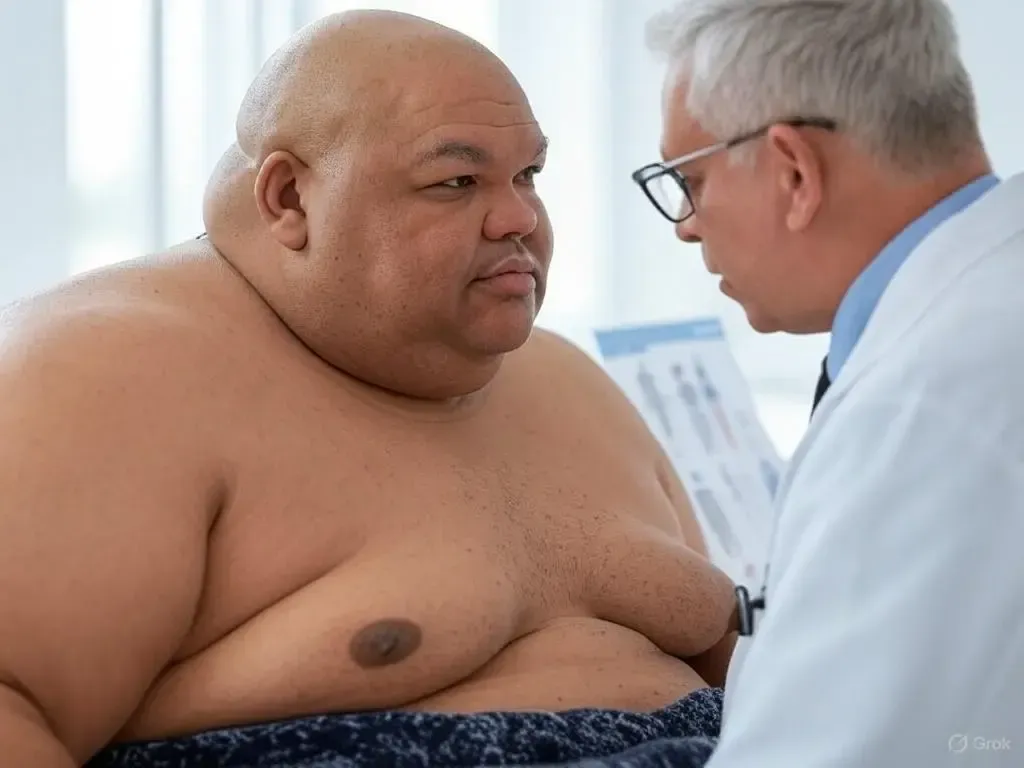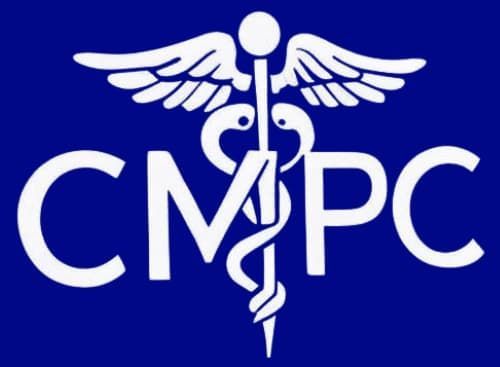
One concern may linger if you're considering weight loss treatment in Cumberland: "What if it doesn't work for me?"
This question reflects a perfectly valid worry shared by many of our patients. After all, committing to any medical treatment requires an investment of time, hope, and resources, and the possibility of disappointing results deserves honest discussion.
At CMPC, we understand this concern and believe in transparent conversation about treatment response variability. While our weight management approaches have high success rates, individual responses vary, and a clear understanding of what happens if you don't achieve expected results helps you make a more confident treatment decision.
Understanding Treatment Response Variability
Before exploring the management of suboptimal results, it's helpful to understand the nature of treatment response variation and realistic expectations.
The Spectrum of Weight Loss Treatment Responses
Patient outcomes naturally vary across a continuum:
- Exceptional responders: Some patients exceed typical weight loss expectations, losing more weight more quickly than average. Approximately 15 to 20% of patients fall into this category, often losing 15 to 20% of their starting weight with the Allurion system.
- Standard responders: Most patients (about 60 to 70%) achieve results within the expected range for their chosen treatment. For the Allurion balloon, this typically means 10 to 15% weight loss over the 16-week program, representing a clinically significant improvement.
- Modest responders: Some patients (roughly 10 to 15%) see positive results but at a lesser magnitude than expected. These individuals might lose 5 to 10% of their starting weight, still providing health benefits but less than typical outcomes.
- Non-responders: A small percentage of patients (approximately 5%) experience minimal weight loss despite appropriate treatment adherence. This can occur with any weight loss approach, though rates vary between treatment types.
- Adverse responders: Patients rarely experience outcomes contrary to goals, such as treatment intolerance requiring early discontinuation or slight weight gain during treatment. This represents less than 2% of cases with the Allurion system.
Understanding this natural variation helps set realistic expectations and prepares you for the possibility that your response may differ from the average. When residents recognize this spectrum from the beginning, they're better equipped to partner with us in adapting the approach if needed.

Factors Influencing Treatment Response
Multiple elements affect individual weight loss results:
- Metabolic factors: Individual metabolic rate, insulin sensitivity, and hormonal balance significantly influence weight loss responsiveness. Some people physiologically resist weight loss more than others due to these underlying factors.
- Genetic predispositions: Growing research confirms that genetic factors affect weight gain tendency and treatment response variation. While we can't change genetics, understanding their influence helps develop realistic expectations and appropriate approaches.
- Starting weight and composition: Patients with higher initial BMIs often lose more absolute weight, while those closer to their goal weight typically lose less. Body composition (fat versus muscle percentage) also influences both rate and visibility of results.
- Adherence capability: The ability to fully implement recommended dietary, activity, and lifestyle changes significantly impacts outcomes. Even perfect procedural treatment delivery requires behavioural support for optimal results.
- Psychological factors: Stress levels, patterns of emotional eating, the sustainability of motivation, and underlying psychological health all affect the effectiveness of treatment. Often, addressing these aspects improves response in initially modest responders.
- Concurrent medications: Some medications for unrelated conditions can affect weight loss results, either promoting weight gain or interfering with loss. Common culprits include certain antidepressants, steroids, anticonvulsants, and some diabetes medications.
- Medical comorbidities: Conditions like hypothyroidism, polycystic ovary syndrome, insulin resistance, or sleep apnea can create additional weight loss challenges requiring specialized approaches. Identifying and addressing these conditions often improves treatment response.
These factors help explain why identically delivered treatments produce different results in different individuals. When patients understand their personal influencing factors, they gain insight into their unique weight management journey.
Our Approach to Identifying Suboptimal Response
At CMPC, early identification of treatment response issues allows timely intervention.
Proactive Monitoring Protocols
Regular assessment helps catch response concerns early:
- Systematic weight tracking: Regular weigh-ins following a consistent protocol (same time of day, clothing, scale) provide objective progress measures. We assess weight every two weeks during the first month and then monthly thereafter.
- Body composition evaluation: Beyond simple weight, we monitor changes in body composition when appropriate, as some patients experience favourable body composition changes even with modest weight reduction. This provides a more complete picture of treatment effects.
- Progress milestone expectations: Clear targets at specific times help identify whether you're on track or falling below expected response curves. For the Allurion balloon, we typically expect approximately 30 to 40% of total weight loss in the first month.
- Symptom response assessment: Tracking changes in obesity-related symptoms like joint pain, sleep quality, energy levels, and breathing comfort provide additional response measures beyond the scale. Several patients report significant symptom improvement even before reaching ultimate weight goals.
- Behavioural adherence evaluation: Regularly reviewing dietary habits, activity levels, and other behavioural components helps identify whether suboptimal results stem from treatment effectiveness or implementation challenges. This distinction guides appropriate intervention.
- Psychological impact monitoring: Regular assessment of emotional well-being, motivation levels, and satisfaction helps identify when psychological support might improve outcomes. This holistic monitoring ensures that emotional health supports physical progress.
This multi-faceted monitoring approach ensures we quickly recognize when results don't match expectations, allowing early intervention rather than waiting until the treatment conclusion to address concerns.
The Comprehensive Response Assessment
When results fall below expectations, thorough evaluation guides next steps:
- Medical factor investigation: We explore whether underlying medical conditions or medication effects might limit your response. Sometimes, previously undiagnosed conditions like subclinical hypothyroidism are discovered during this assessment.
- Metabolic functioning evaluation: Targeted testing assists in determining if metabolic factors, such as substantial insulin resistance, present further obstacles that necessitate specialized strategies. Tackling these elements frequently enhances subsequent outcomes.
- Treatment implementation verification: For procedural treatments like the Allurion balloon, we confirm proper placement and function through appropriate imaging when response concerns arise. This ensures the treatment is physically working as intended.
- Dietary pattern detailed analysis: In-depth nutritional review, sometimes including food journaling, helps identify whether specific eating patterns limit results. Minor adjustments to macronutrient balance or eating timing sometimes produce significant improvements.
- Psychological barrier identification: Exploration of emotional factors, stress levels, and behavioural patterns may reveal unconscious habits or coping mechanisms affecting results. Addressing these psychological factors leads to improved physical outcomes.
- Sleep quality and duration assessment: Sleep disturbances significantly impact weight management success, sometimes lurking as hidden saboteurs of otherwise appropriate efforts. Often, improving sleep quality enhances treatment response.
This comprehensive assessment approach ensures we identify the specific factors limiting your results rather than making generic assumptions. Patients appreciate this personalized troubleshooting process that recognizes their unique situation.
Intervention Strategies for Improving Treatment Response
When assessment identifies a suboptimal response, we implement tailored intervention strategies.
Modification Options for the Allurion System
Our primary treatment can be optimized through several approaches:
- Enhanced dietary structure implementation: More specific meal planning, macronutrient adjustments, or timing modifications often improve balloon effectiveness. For some patients, shifting to a slightly higher protein intake or adjusting meal frequency significantly enhances results.
- Targeted behavioural support intensification: Increasing the frequency or depth of behavioural counselling helps address specific challenges limiting results. Weekly rather than monthly support sometimes makes a critical difference during challenging phases.
- Complementary medication consideration: In some cases, adding appropriate weight management medication alongside the balloon helps overcome metabolic resistance factors. This combination approach sometimes provides synergistic benefits that exceed treatment alone.
- Physical activity optimization: Customized adjustments to exercise type, intensity, duration, or timing can enhance modest results. Many patients benefit from specific guidance rather than general activity recommendations.
- Psychological support integration: Adding specialized counselling for emotional eating, stress management, or motivation enhancement strengthens overall treatment effectiveness. This additional dimension often unblocks progress for initially modest responders.
- Sleep improvement protocol addition: Specific sleep hygiene interventions, and sometimes sleep disorder evaluation, can improve direct weight results and adherence capability. Patients don't realize how significantly sleep affects their weight management success.
These modification approaches often transform modest responses into satisfactory results without requiring complete treatment changes. Most patients achieve their goals through these optimization strategies rather than treatment replacement.
Alternative Treatment Consideration When Necessary
In some cases, a different approach better suits your needs:
- Treatment intensity escalation options: Moving from less invasive to more intensive treatments may be appropriate when initial approaches prove insufficient despite optimization attempts. This might mean transitioning from balloon therapy to medication or from medication to surgical options.
- Treatment mechanism switching consideration: Changing to a treatment that works through different physiological mechanisms sometimes overcomes resistance factors. For example, moving from balloon therapy focused on stomach capacity to medications targeting hormonal pathways.
- Combination therapy implementation: Sometimes, combining complementary approaches provides better results than sequential individual treatments. Appropriate combinations are carefully selected based on your specific resistance factors.
- Specialized program referral possibilities: Patients with significant complicating factors sometimes benefit from highly specialized programs targeting their specific challenges. We maintain relationships with specialized obesity medicine providers for these situations.
- Sequential treatment planning: Developing a strategic sequence of different approaches sometimes proves more effective than expecting any single treatment to achieve the entire goal. This staged approach often provides psychological advantages through incremental success experiences.
- Maintenance-focused transition: In some cases, shifting focus from additional weight loss to successful maintenance of progress already achieved represents the most appropriate strategy. This perspective adjustment acknowledges the significance of preventing weight regain.
These alternative approaches ensure that effective options remain available even if your initial treatment doesn't produce optimal results. Concerned residents appreciate that unsuccessful first attempts don't close the door to successful weight management.
The Psychological Aspect of Treatment Response Challenges
The emotional impact of suboptimal results requires specific attention and support.
Managing Disappointment and Maintaining Motivation
Psychological strategies support continued progress despite challenges:
- Expectation recalibration assistance: Help adjust expectations to realistic timeframes and outcomes based on your factors to prevent unnecessary disappointment. Understanding your challenges often transforms perceived "failure" into realistic progress.
- Non-scale victory recognition emphasis: Focusing on improvements beyond weight, like better sleep, increased energy, improved lab values, reduced pain, or enhanced mobility, motivates weight plateaus. Numerous patients indicate substantial improvements in their quality of life, even with modest changes in weight.
- Progress perspective adjustment: Comparing current status to a starting point rather than to idealized goals often reveals significant accomplishments that maintain motivation. This retrospective view balances the sometimes intimidating prospective view of remaining goals.
- Temporary challenge framing: Presenting response difficulties as solvable puzzles rather than permanent barriers keeps the focus on solutions rather than limitations. This problem-solving mindset promotes resilience during challenging phases.
- Personal control enhancement: Identifying aspects within your direct control helps prevent feeling helpless when biological factors create challenges. Focusing on controllable behaviours rather than scale results often improves psychological well-being and ultimate outcomes.
- Community connection facilitation: Linking with others experiencing similar challenges provides emotional support, practical strategies, and normalized experiences. Shared journeys often feel more manageable than solitary ones.
These psychological approaches help maintain momentum even when initial results don't meet expectations. Patients ultimately achieve their goals through persistence despite early challenges, making psychological support a critical success factor.
When to Consider Psychological Specialty Care
Sometimes, more intensive psychological support benefits the weight loss journey:
- Significant emotional eating patterns: When food serves mainly as a means of emotional regulation rather than a source of nutrition, specialized therapy can significantly enhance outcomes. Tackling these deep-seated patterns allows for previously resistant weight loss to occur.
- Body image disturbance severity: Distorted perception of body changes or weight status sometimes requires specialized intervention. Improving body image enhances motivation and treatment adherence.
- Depression or anxiety interference: When these conditions complicate weight management, appropriate mental health treatment often produces better weight outcomes alongside improved emotional well-being. Sometimes, treating underlying depression transforms previously modest weight loss results.
- Disordered eating behaviour emergence: Occasionally, weight loss efforts trigger problematic eating patterns requiring specialized care. Early intervention prevents progression to more serious eating disorders.
- Motivation system dysfunction: Chronic motivational issues can often be effectively addressed using specialized psychological methods such as motivational interviewing or cognitive-behavioural therapy. Usually, tackling these core patterns leads to lasting changes in behaviour.
- Trauma connection identification: Sometimes weight and eating behaviours connect to previous trauma, requiring specialized treatment approaches. By addressing these underlying factors, progress that was previously hindered by unconscious barriers often becomes possible.
For patients facing these challenges, we facilitate connection with appropriate mental health professionals specializing in weight-related psychological care. This additional support works alongside medical treatment to address all dimensions affecting your success.
Real Patient Journeys: Navigating Treatment Response Challenges
While individual experiences vary, these anonymized examples from patients illustrate common response challenge scenarios and solutions:
Margaret's Experience: Overcoming Plateau Through Protocol Adjustment
A 48-year-old office manager experienced early success followed by plateau:
- Initial response: Lost 7kg in the first month with the Allurion balloon
- Challenge phase: Weight loss stalled entirely during weeks 5 to 8 despite continued adherence
- Assessment findings: Detailed nutritional review revealed inadvertently low protein intake and excessive carbohydrates
- Intervention approach: Adjusted macronutrient balance with protein increase and implemented specific meal timing schedule
- Outcome: Resumed weight loss, achieving 14kg total loss by program completion
- Her perspective: "The plateau was frustrating, but having the team analyze my specific nutrition patterns rather than just telling me to 'try harder' made all the difference. The customized adjustments got things moving again."
Robert's Experience: Combination Approach Success After Modest Response
A 56-year-old construction supervisor experienced less-than-expected results:
- Initial response: Lost only 4kg in first six weeks with the Allurion balloon despite adherence
- Assessment findings: Identified significant insulin resistance and shift work challenges affecting metabolism
- Intervention approach: Added appropriate weight management medication to address metabolic factors alongside the balloon
- Outcome: The combination approach yielded an additional 11kg loss during the remaining program
- His perspective: "I was disappointed initially, but the team didn't give up. Adding the medication made a huge difference once they identified my metabolic challenges. I appreciated that they had a Plan B ready when Plan A wasn't enough by itself."
Emily's Experience: Psychological Support Unlocking Progress
A 34-year-old teacher experienced minimal initial results despite perfect procedural execution:
- Initial response: Lost only 2kg in the first month despite confirmed proper balloon placement
- Assessment findings: Identified significant stress-related cortisol issues and emotional eating patterns
- Intervention approach: Added specialized psychological support focusing on stress management and emotional regulation
- Outcome: Addressing psychological factors led to 9kg additional loss during the program
- Her perspective: "I didn't realize how much my stress affected my body's ability to lose weight. The psychological support didn't just help with my eating, and it seemed to change how my body responded to the treatment altogether."
These experiences highlight the personalized approach to response challenges that helps patients succeed, even when the path isn't initially straightforward. Most importantly, they demonstrate that a suboptimal initial response doesn't predict the outcome when appropriate adjustments are implemented.
The Value of Persistence: Long-Term Perspective on Response Challenges
When considering treatment response, maintaining a broader perspective offers crucial insights:
- Weight management journey continuity: Rather than viewing treatments as isolated events with binary success/failure outcomes, seeing them as steps in an ongoing health journey promotes resilience and learning. Each treatment experience provides valuable information for optimizing your long-term approach.
- Learning opportunity recognition: Response challenges often reveal important insights about your unique body and its needs that prove valuable throughout your lifetime. Patients report that their most significant learnings came from navigating treatment challenges rather than smooth successes.
- Sustainable habit development focus: Even when weight loss proves slower than expected, the healthy habits developed during treatment create a foundation for long-term success. These behavioural gains often prove more valuable than initial rapid weight loss followed by regain.
- Personalization advantage accumulation: Each response challenge leads to a more personalized understanding of your specific needs, gradually creating a highly customized approach that works for your unique situation. This accumulated knowledge improves future outcomes.
- Health improvement acknowledgment: Remember that even modest weight loss (5 to 10% of starting weight) provides significant health benefits, including improved blood pressure, blood sugar, cholesterol, and reduced joint stress. These benefits occur even when cosmetic changes seem less dramatic.
- Resilience skill development: Navigating treatment response challenges builds psychological resilience that serves you well beyond weight management, contributing to overall life satisfaction and effectiveness. Many patients find these psychological gains equally valuable to physical ones.
This broader perspective helps maintain motivation and confidence even when facing treatment response challenges. The most successful patients view their weight management as a marathon rather than a sprint, measuring success across years rather than weeks.
Our Commitment to Your Success
At CMPC, we define success not as a perfect treatment response but as finding the approach that works for your unique situation:
- Results responsibility partnership: We view treatment outcomes as a shared responsibility between our medical expertise and your implementation efforts. This collaborative approach prevents either placing full responsibility on you or promising unrealistic medical miracles.
- No-abandonment policy adherence: We commit to working with you until appropriate solutions are found, even if initial approaches require modification. No patient is ever left without options or support if their first treatment choice proves suboptimal.
- Multiple pathway availability assurances: Our diverse treatment options ensure alternatives remain available regardless of initial treatment response. This treatment spectrum allows appropriate escalation or approach changes when needed.
- Continuous learning implementation: We constantly update our protocols based on emerging research and clinical experience to improve outcomes for response-challenged patients. This evolving approach incorporates the latest advances in obesity medicine.
- Judgment-free environment maintenance: We never blame patients for biological response variations beyond their control. This supportive atmosphere encourages honest communication that improves problem-solving effectiveness.
- Long-term relationship development: We view our role as long-term partners in your health journey rather than single-intervention providers. This perspective supports sustained success through life's inevitable changes and challenges.
This comprehensive commitment ensures that a path forward always exists regardless of initial treatment response. Patients consistently report that this assurance reduces anxiety about treatment decisions, knowing that adjustments remain available if needed.
Your Next Steps Toward Personalized Weight Management
Understanding how treatment response challenges are addressed is vital in making informed treatment decisions. For most residents of Cumberland considering weight management options, the Allurion Gastric Balloon system is an excellent starting point due to its effectiveness, safety, and compatibility with adjustment strategies if needed.
Remember that even patients requiring treatment modifications often achieve their goals through persistence and appropriate adjustments. The most critical factor in long-term success isn't a perfect initial response but a commitment to finding the approach that works for your unique situation.
You may wish to read "What are the best weight loss methods available for people with a high BMI?" to explore the full spectrum of treatment options available at CMPC.
Ready to discuss how we can develop a personalized weight management plan that adapts to your specific needs and response patterns?
Contact CMPC today to schedule your consultation. Our experienced team will help you understand the full range of options available, address your concerns about treatment response, and develop a flexible approach designed for your unique situation.
Don't let worries about potential response challenges prevent you from taking the first step toward improved health. Call us NOW to begin your customized weight management journey with confidence.










